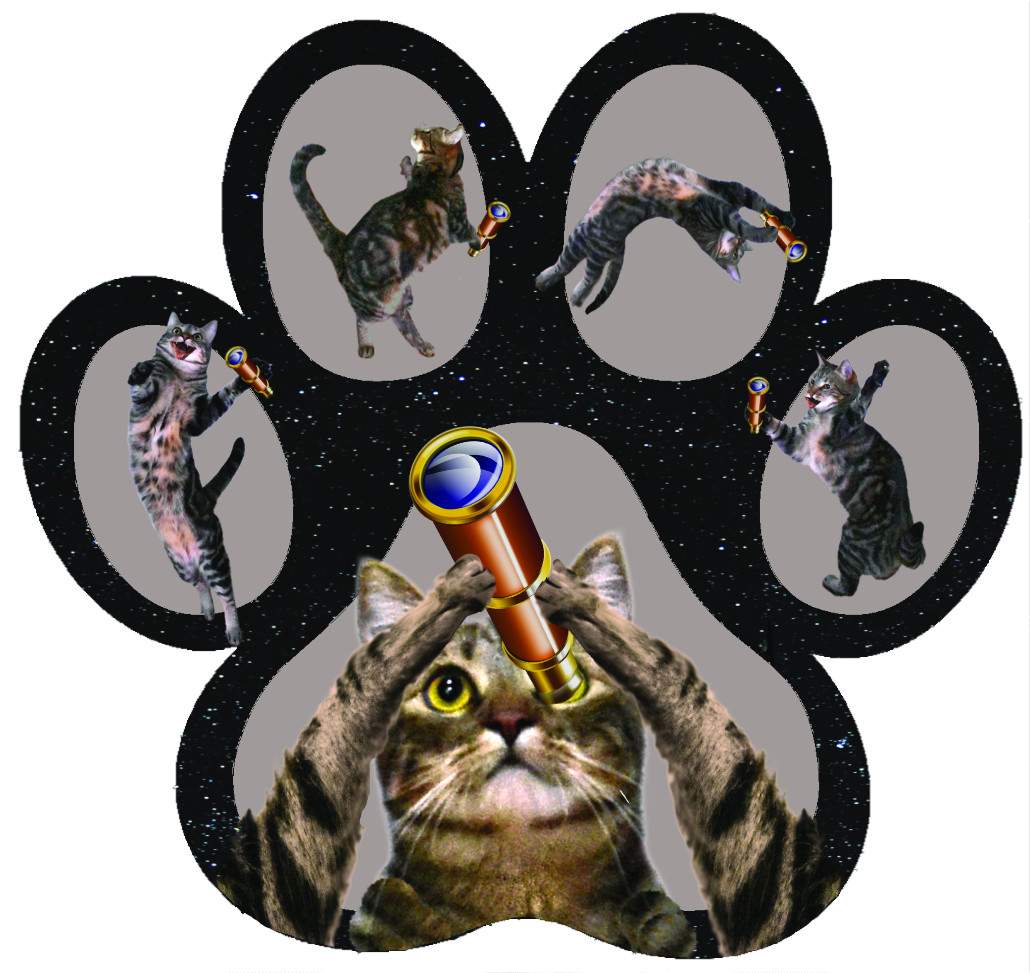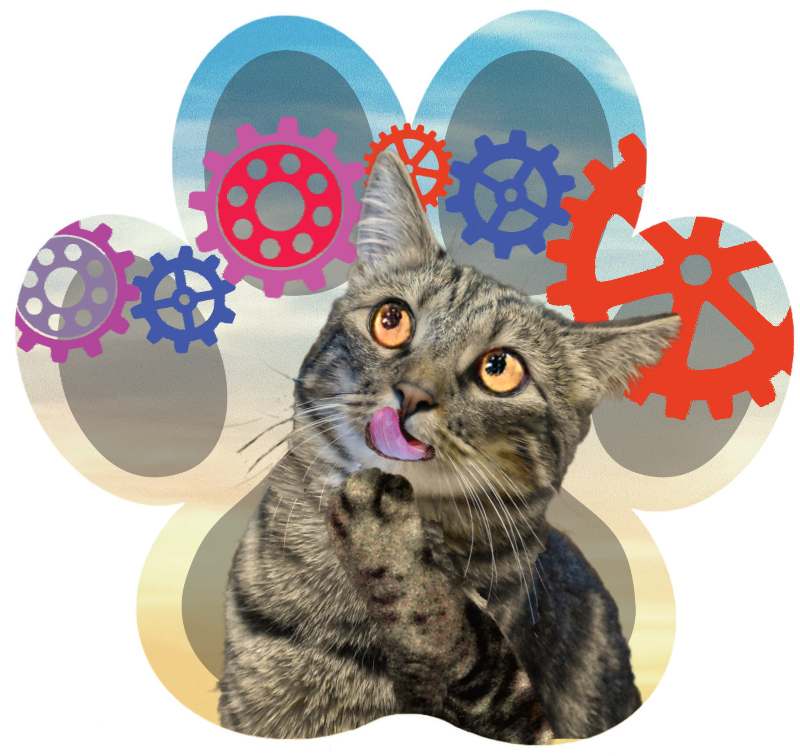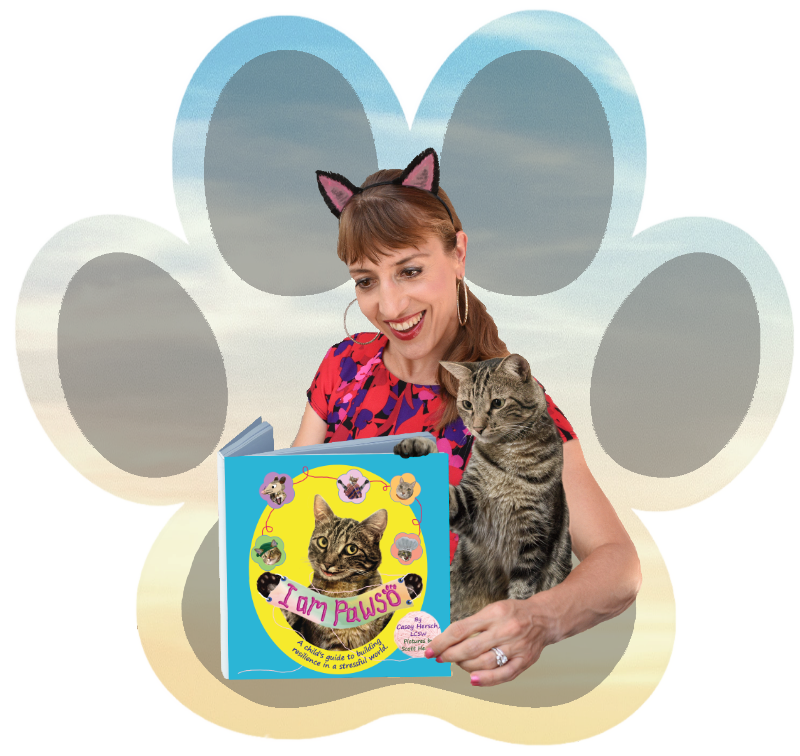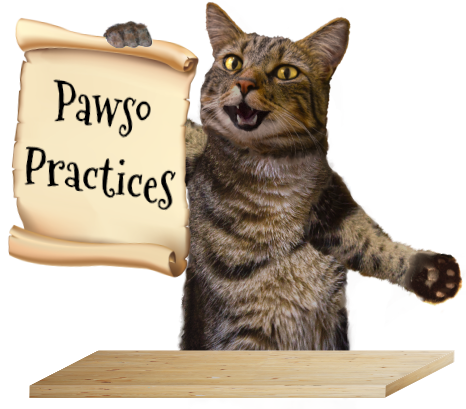Pawso Practices
The Top Three...
1. Pawsonality

Identify and embrace who you are and your unique strengths, talents, and gifts. Use these assets as resources which help you thrive in uncertainty.
Most of your coping skills already exist inside of you and in your environment. It is time to put them to good use!
2. Paws and Reflect
 Take a moment to pause and reflect on situations before reacting or making a choice. Identify and know your choices. Give yourself permission to walk away and say, "no." Accept that it is OK not to have all the answers or know what to do. Understand that feelings are normal and you will have lots of them. But you have choices for what you do with these feelings and how to respond. It is courageous to take a moment to think before you act.
Take a moment to pause and reflect on situations before reacting or making a choice. Identify and know your choices. Give yourself permission to walk away and say, "no." Accept that it is OK not to have all the answers or know what to do. Understand that feelings are normal and you will have lots of them. But you have choices for what you do with these feelings and how to respond. It is courageous to take a moment to think before you act.
When you Paws and Reflect, you create an opportunity for growth and learning. Everyone makes mistakes. When you take a time out to collect your thoughts and calm down, you can forgive yourself, apologize, and make a different choice next time. You can use your experiences to understand how to treat yourself and others better.
3. Catitude

Get to know your thoughts, beliefs, messages, and words you say to yourself. Notice how your internal dialogue affects how you feel, react, and respond to situations and others. Other people see your catitude because this is the part of yourself that you let them see.
More Practices to Pawnder...

Make a Choice:
1) My Actions
2)What Can I Do?
-
- What I do Outside of me changes inside of me
- Stay Calm
- Use my imagination
- Use my Voice
- Use Names and Word to Empower
- Stay Open minded
- expand Your View
- Learn new things
- Explore new activities
- Move my Body
-
- Listen to Music
- Try creative outlets (Art, cooking, time in nature, music)
- Somatic Resourcing
- Choose people who make me feel good
- Know when I can trust adults such as teachers
- Ask for help
- Avoid peer pressure
- Avoid bullies
- Make Friends
Self-Talk:
1) What I tell myself
2) When I notice my inside, I respond better to my outside
-
- It’s OK To be Me
- I am important
- I am Special and Unique
- I am the boss of my feelings inside
-
- I have gifts inside that give me my fame
- Inner Power
- I know how to feel secure
Lessons/Virtues:
I will always grow these categories
-
- Cultural humility
- Accepting Differences
- Kindness
- Self-reflection
- Self-Acceptance
- Forgiveness
- Self-Responsibility/Personal Ownership
-
- I expand my family when I make friends
- Self-Awareness
- Setting boundaries
- Recognizing when I am safe & when I am not
- Creating my own environment of safety & acceptance
- Continue learning
- Learn from my relationships & friends
Why The Practices Matter:
I Am Pawso is a collection of easy-to-understand Pawso Practices focused on expanding children’s coping skills, emotional intelligence, self-awareness, sense of agency, social skills, and mind-body connection.
The concepts presented in I Am Pawso integrate the following research supported principles and evidence-based modalities:
Somatic Therapies, Play/Art Therapies, Neuroscience, Neuroplasticity (rewiring thinking), Attachment Theory, Cognitive Behavioral Approaches, Strength-Based Approaches, 40-Developmental Assets (Search Institute), Behavioral Strategies, Cognitive Change Skills, Social Emotional Learning, Systems Theory, Mind-Body Approaches, Trauma Sensitive treatment, Adverse Childhood Experiences (ACEs), Empowerment principles, and MORE…
Children thrive when healthy relationships are modeled to them and when they feel seen and understood by friends, adults, and family. Pawso meets diverse cat characters, Pawso’s Posse, throughout the story who show him the importance of family and friends, respecting individual and cultural differences, and practicing how to communicate, forgive, accept, be kind, and keep an open mind.
But for a moment, my mind starts to churn. I can change my thoughts with a shake and a turn!
When kids learn how to understand and manage their emotions, research shows that throughout their lives they choose healthier relationships, perform better in school and work, feel more motivated, and suffer less from mental illness. Pawso shows children ways they can self-regulate and self-soothe making them more adaptable, confident, and able to bounce back from adverse events. As Pawso develops empathy for his new friends, he understands how he can learn from his mistakes and even use his experiences to understand others’ perspectives.
Shake n’ Turn, Grow, and Learn!
When kids identify and understand how to grow their unique strengths, gifts, and talents they can use these assets to help them cope with stressful situations. Pawso takes kids on a journey of discovery as he cooks, climbs, imagines, dances, paints, learns, and shake n’ turns his way through problems. Kids will gain confidence as they understand their own resources and how to put them into action.
Our thoughts affect how we feel and behave. Pawso teaches children to use affirmations and positive self-talk such as “I Can Do This!” or “When I don’t feel safe, I can make a new rule!”
No matter a child’s age, the more parents read, talk, and sing to them, the more they flourish! Whether a parent or adult is reading to a child or the child is reading the book themselves, I Am Pawso introduces empowering language that motivates and encourages using one’s voice through self-advocacy. Let’s improve reading and language skills, too!
- Cultural diversity
- Bullying
- Safety
- Peer Pressure
- Setting Boundaries
- Family
- Self-Acceptance
- Kindness
- Individual Differences
- Adult-Child relationships
- Communication
- Assertiveness
- Relaxation
- Self-Care
- Values and traditions
I Am Pawso is recommended by a Psychotherapist and Social Worker and written with parents, teachers, therapists, and child caregivers in mind.
The key to building resilience is understanding how to use our strengths and inner powers to calm down, expanding our views, and learning how to feel in control even when the rest of the world is not. Shifting perspective is essential.
“Early intervention is key. If teachers, parents, educators, therapists, and daycare providers start teaching every child and youth the Pawso Practices, they will lay a foundation based on resilience and confidence.”
